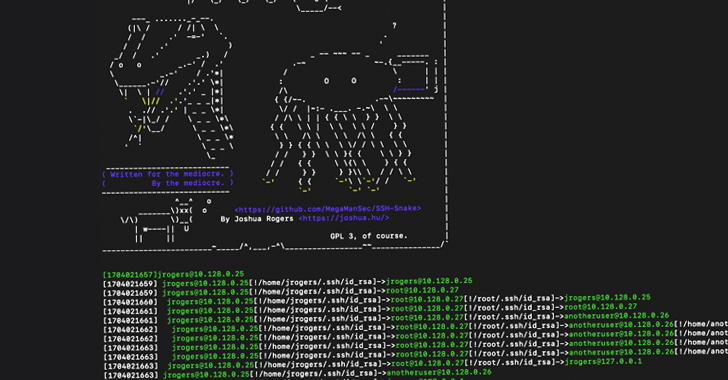
February 22, 2024 at 05:51AM
SSH-Snake, a network mapping tool, has been repurposed by threat actors to conduct malicious activities. The self-replicating worm leverages SSH credentials to spread throughout the network and harvest credentials and IP addresses. It has been observed in real-world attacks, highlighting the importance of comprehensive security measures. Additionally, a new botnet campaign named Lucifer has been uncovered by Aqua, exploiting misconfigurations and existing flaws in Apache Hadoop and Apache Druid. This emphasizes the significance of addressing vulnerabilities in widely used open-source solutions.
From the meeting notes, it is evident that there is growing concern about the use of the open-sourced network mapping tool called SSH-Snake, which has been repurposed by threat actors to carry out malicious activities. The SSH-Snake is a self-modifying worm that spreads throughout a network by leveraging SSH credentials discovered on a compromised system. This tool can create a comprehensive map of a network, compromise systems using SSH private keys, and supports resolution of domains with multiple IPv4 addresses.
Additionally, there are observations of threat actors deploying SSH-Snake in real-world attacks to harvest credentials and IP addresses following the discovery of a command-and-control server hosting the data. The developer of SSH-Snake, Joshua Rogers, has emphasized that the tool offers legitimate system owners a way to identify weaknesses in their infrastructure before attackers do, urging companies to use SSH-Snake to discover and fix attack paths.
Furthermore, a new botnet campaign named Lucifer has been uncovered by Aqua, which exploits misconfigurations and existing flaws in Apache Hadoop and Apache Druid to mine cryptocurrency and stage distributed denial-of-service attacks. This hybrid cryptojacking malware has been targeting susceptible Apache big data stack instances, as well as Apache Flink instances. The attacker exploits existing misconfigurations and vulnerabilities in these services to implement the attacks.
It is clear from the notes that there is a need for heightened vigilance and proactive security measures to combat the evolving threats of cyberattacks, particularly those exploiting known vulnerabilities and misconfigurations in widely used open-source solutions.
Should I proceed with drafting action items or identifying key takeaways from the meeting notes?